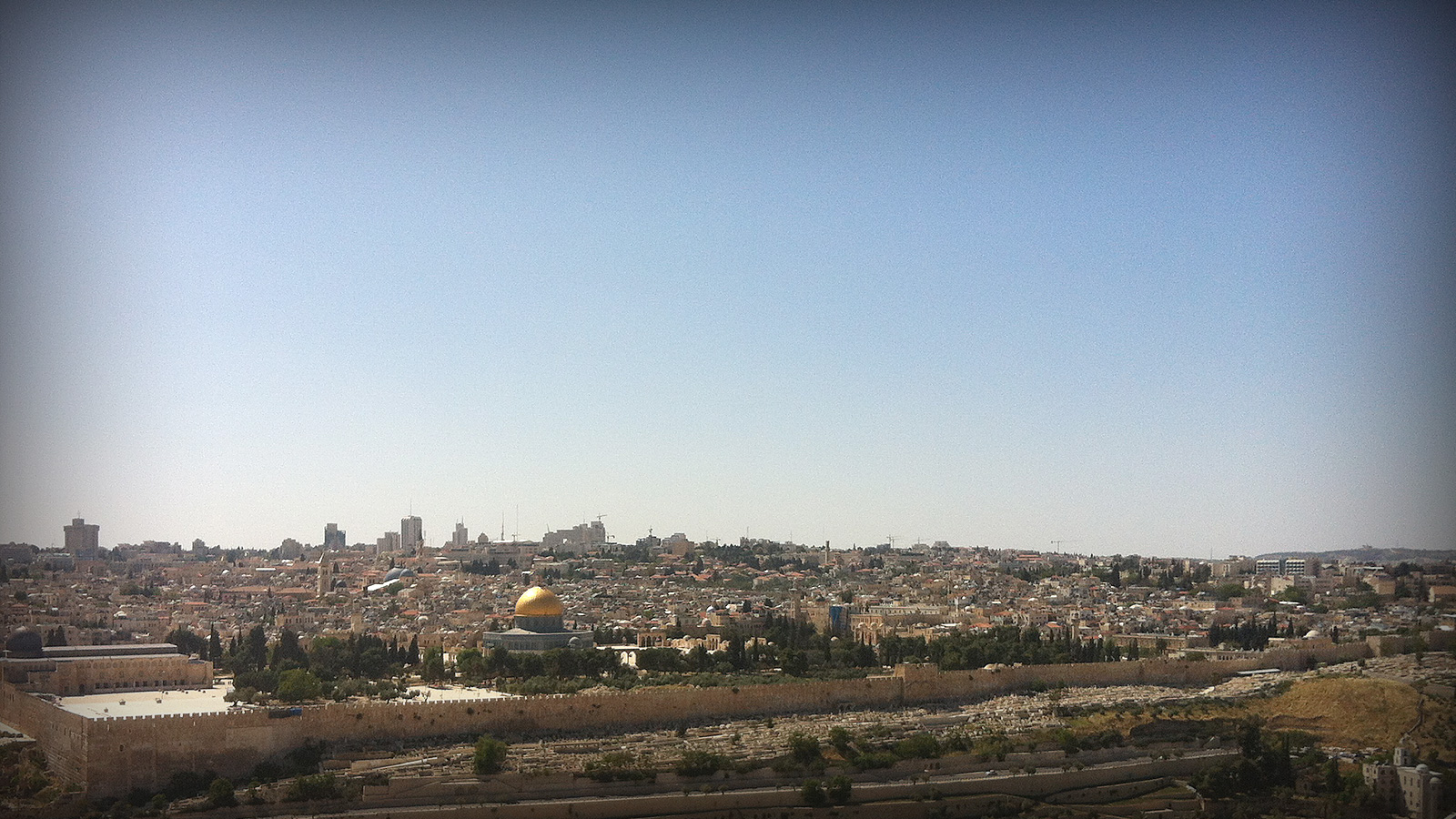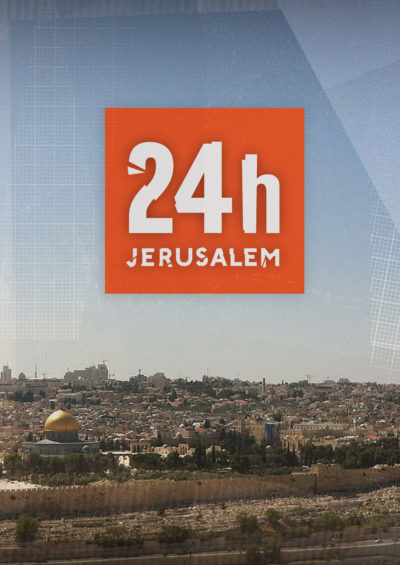24hJérusalem, an exceptional documentary: Twenty-four hours, minute by minute, describing a day in the life of Jerusalem.
Exceptional programming and extraordinary technical achievement that measures up to this magical and paradoxical global city. The film was shot in April 2013, one year before the broadcast. At all times during the broadcast, viewers could synchronize their television set with a second screen (tablet, smartphone, computer) in order to enhance the documentary.
An unprecedented experience that brings together informative content and live performance provided by a team of “Viners” right there in Jerusalem. #24hjerusalem, the webdoc, is an Alegria, Upian, Zero One Film, Arte, and BR co-production. Get synced!
What producers Serge Gordey & Alexandre Brachet envisioned
The television and Internet duality is a hotly debated topic within the cultural sector. Some even go as far as saying that the Web is killing television. We believe that television is reinventing itself through the Internet.
A creative and collective adventure
To meet the challenge of sharing the life of Jerusalem’s inhabitants over the course of an entire day and night, the program’s producers decided, exceptionally, to make it accessible for a two month period – on the Web.

We decided to take things even further. With a little help from ARTE and BR, we came up with a completely original idea: during the entire program’s duration, the audience could access complementary pieces of information – nearly 1,000 of them – on a second screen (tablet, smartphone, computer), that had been previously synchronized with the program’s timeline.
Integration of Web-native images and television
Apart from these informative fact sheets, hundreds of mini-movies created in Jerusalem are linked to the television program sequences. They consist in footage shot by a team of filmmakers, artists, videographers, or simply amateur image-makers, who present their unique off-the-wall, ironic, poetic, and obviously subjective visions. These videos were shot on-the-fly during the broadcast and selected in real-time by our Web production team.
Another way of experiencing 24h Jérusalem, tailor-made for the Web. A means of showing how an image can always hide, or, better yet, suggest another.
Not merely a program but also an event, 24h Jérusalem was broadcast over twenty-four hours, from 6 am on April 12 to the same time the next morning. These dozens of stories, recorded in real-time, mixed with each other, answered or opposed each other, during this incredible video saga that allows us, minute by minute, to live to the beat of Jerusalem.
The Web device
24h Jérusalem is not only a documentary program that shatters television format conventions, it’s also an innovative Web project which, before, during, and after broadcasting, provides Internet users with enhanced content for all screens, available online at arte.tv/24hjerusalem.
Before
On March 19, 2014, exactly 24 days prior to broadcast, the countdown to this incredible event launched on the Web. Everyday, Volker Heise, the project’s supervisor, gave exclusive insight into his production: the hardships encountered while preparing for the shoot in this city torn apart by both age-old and all-too-current conflicts.
During
At any point during the broadcast, viewers had the option of synchronizing a second screen (tablet, smartphone, computer) with their television sets in order to enhance their documentary experience through complementary content.
Part of the Web team was stationed in Jerusalem to create a live documentary experience using Twitter’s Vine tool to post their 6-second videos via the #24hjerusalemhashtag.
[Videos integrated into the second screen program.]
Whether in Jerusalem, Paris, Berlin or elsewhere, Internet users were also able to post their own Jerusalem-related comments, photos, and videos via the #24hjerusalem hashtag.
Merci @ARTEfr pour #24hjerusalem , pas encore changé de chaîne, pas encore mangé, pas pris de douche … vous pouvez faire une pause ? 🙂
— nico (@hellprout) 12 Avril 2014
The Interface
Key principles and numbers
A co-production
- Arte: Sabine Lange and Marianne Levy-Leblond
- Alegria Productions: Serge Gordey and Christine Camdessus
- Upian: Alexandre Brachet
- Zero One 24: Thomas Kufus
- BR: Rebecca Smit
- With the support of CNC and Film-Und Medienstiftung NRW

































